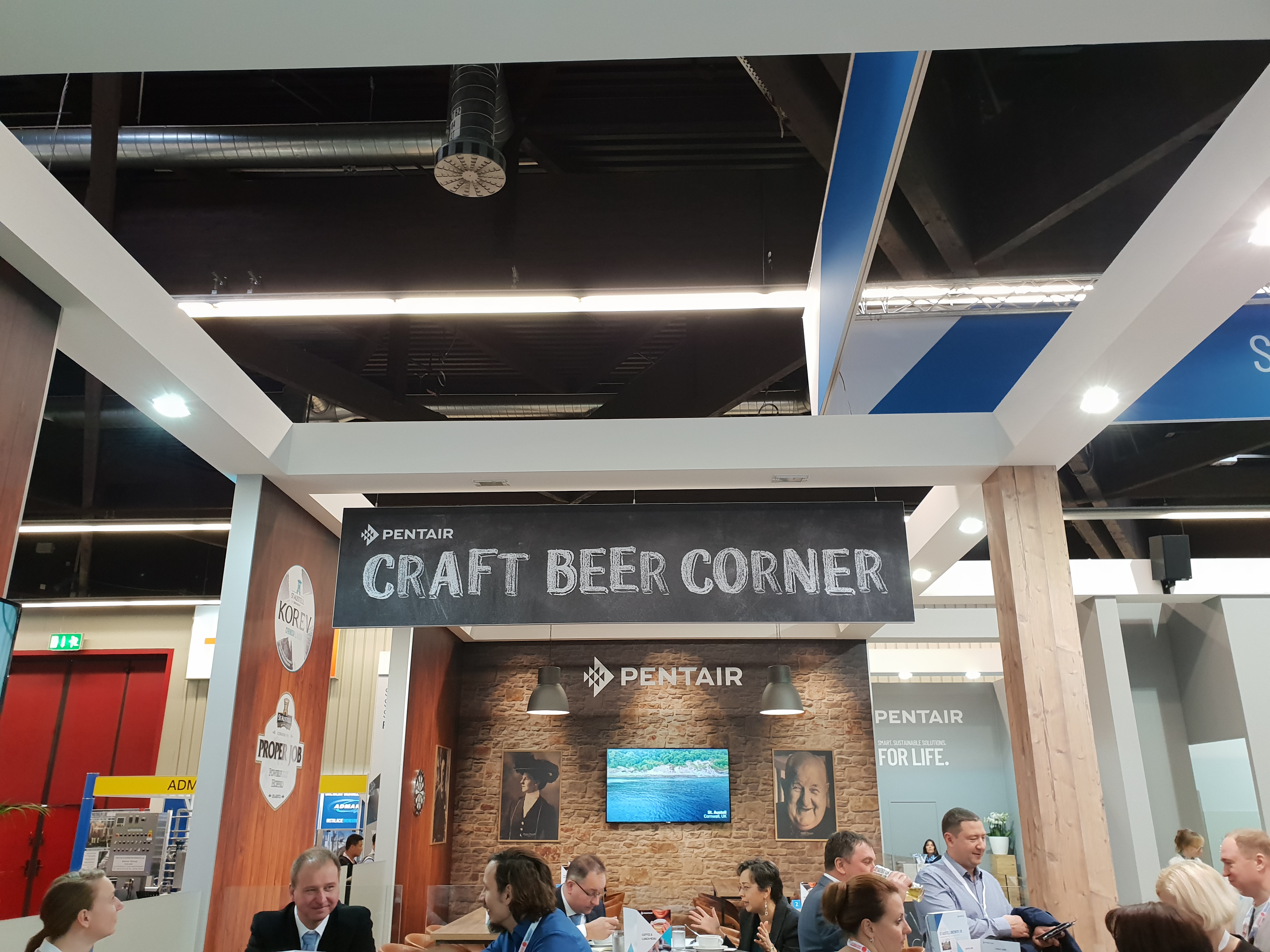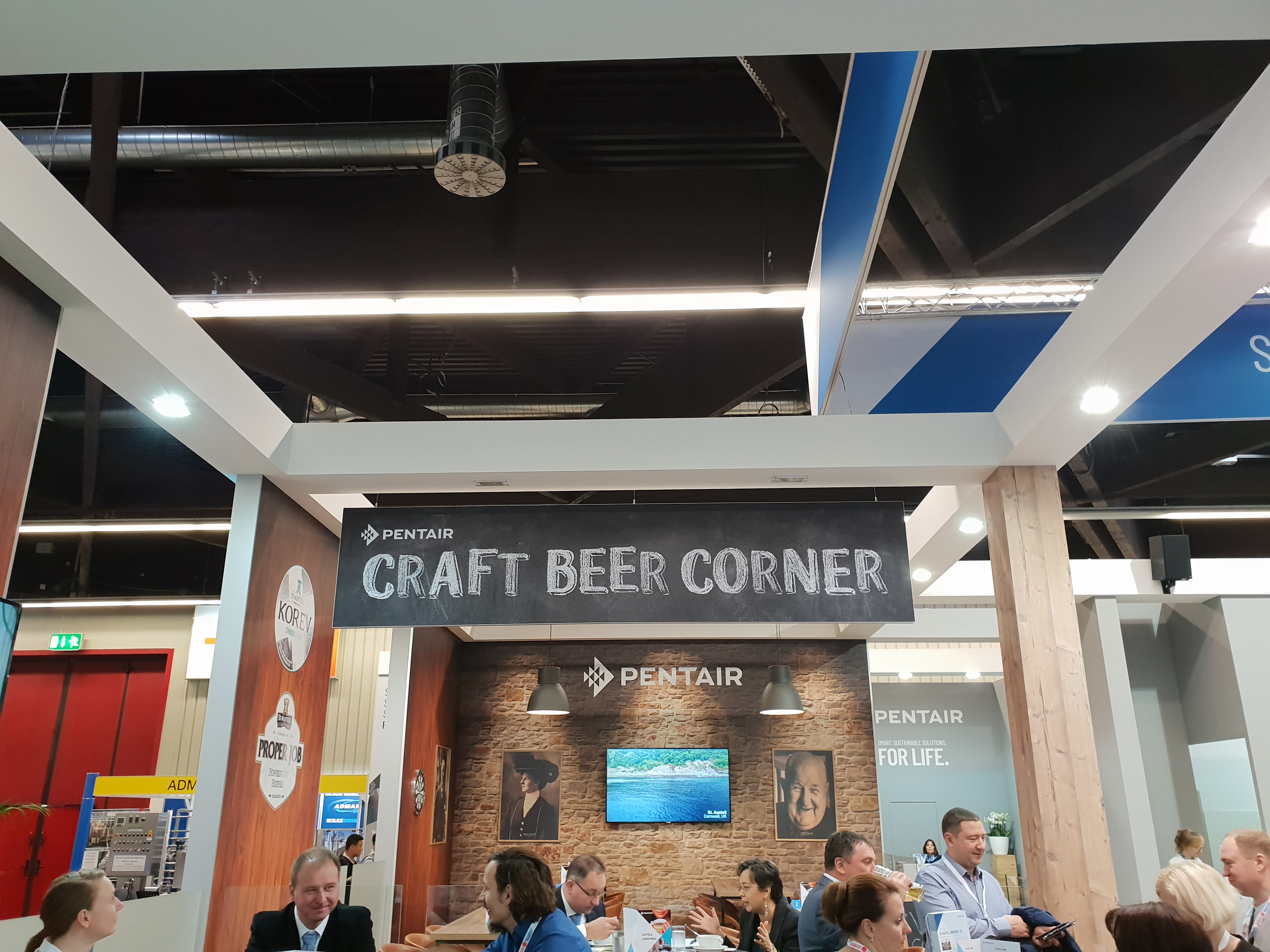Braubeviale: a brief look back at some of this year’s highlights
Braubeviale is one of Europe’s most important trade fairs for the production, marketing and sales of soft and alcoholic beverages. Held in Nuremberg every three out of four years and replaced by Drinktec in Munich every fourth year, it brings together brewers, distillers, engineers, equipment manufacturers and suppliers plus many others involved in the drinks industry. From 13th to 15th November 2018, nearly 1100 exhibitors showed their products and services to an expected 38,000 trade visitors interested in the raw materials, technology, components, packaging and marketing of beer, wine, spirits, cider and soft drinks.
While beautifully engineered distillery and brewhouse installations, including stills, mash tuns, fermentation vessels and bottling lines were among the most striking exhibits, there were plenty of other highlights too.
Craft beer
One clear theme of this year’s fair was the importance of the craft beer market with a plethora of eye-catching signs, posters, stalls, talks and tastings dedicated to this global phenomenon. There was a good variety of beers from around the world to try and some of the most interesting were from Spain’s Cervesa del Montseny and Cerveses La Pirata plus a strong showing from Italy too.
Reduced alcohol beers
Low and no-alcohol beers represent a growing category which was among the various subjects covered by guided tastings in the dedicated Craft Drinks Area. According to the German Federal Statistical Office, sales of beer by breweries and beer storage establishments located in Germany are down by 2.5% year-on-year. In contrast, sales of alcohol-free beer are booming, says the German Brewers Association (DBB). Among many low and no-alcohol beers discussed and showcased at the guided tastings, perhaps the best was Hamburg’s superb top-fermented Kehrwieder Kreativbrauerei. Winner of a prestigious European Beer Star 2018 Gold Award announced at the fair, this is full of tropical fruit aromas and flavours, while the body is impressive for a beer of only 0.4% ABV.
Raw ingredients
Hops, barley, yeast and water are the building blocks of most beers and unsurprisingly were strongly represented at the trade fair.
Hops
Flying the UK flag for hops production, sales and distribution were hop grower Stocks Farm and hop merchant Charles Faram with an imposing display of British and international hop varieties.
Malt
Crisp Malting Group and Muntons were among the renowned maltsters showcasing their products at Braubeviale. Award-winning Govinda IPA, brewed by Cheshire Brewhouse using the heritage Chevallier malt supplied by Crisp, is a unique English amber-coloured IPA that recreates the original Burton recipe and style from the early 1800s. Hugely flavourful and complex with stone fruit and citrus notes plus a defined malty backbone, this is a really impressive beer.
Water
One of the talks at Speakers’ Corner was entitled ‘Water – the most important part of your beer’. Discussing the significance of water hardness levels and the effects on flavour of sodium, chloride and sulphate concentrations, the water profiles of different beer styles were compared. Through its innovative water-testing kits, Latvian-based Wateriga provides simple solutions for better brewing and the talk provided a useful insight into the relevance of the company’s products for craft brewers.
Beer Glasses
Glassware is an often under-appreciated part of the drinking experience. Using CIAS Innovation’s neuromarketing technology, Italian company VD Glass invited visitors to a sensory analysis test comparing the same beer served in two different glasses. One was a traditional tasting glass and the other was their new Crafty Glass, designed to optimise perception of a beer’s nuances. Hooked up to electrodes that measure eye tracking and brain activity (electroencephalography), participants had their readings recorded. Although not conclusive, as novelty and interest wane over time, this method certainly demonstrated that a glass’ shape can have a potential impact on how interesting or enjoyable a beer is perceived by individual drinkers.
Long-life closures
Syncor is an innovative German company manufacturing synthetic corks, screw caps and a new ‘NatureCork’ range, providing high-quality closures for still and sparkling wines, craft beers and spirits. These long-lasting seals offer viable alternatives to conventional corks, including using wood fibres instead of cork particles to prevent cork taint. Their ‘Wood-Crown Cork’ for wine or beer incorporates an insert made of toasted oak that offers the advantages of a standard screw-top with the benefits of top quality natural wood.
Author – Robin Goldsmith






